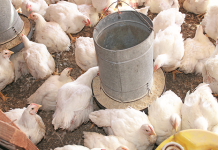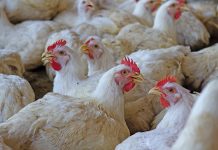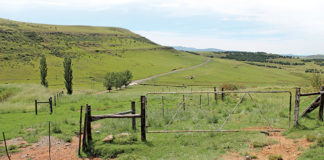There is a Tswana saying – Le otjwa le santse le metsi – which means that it is easier to bend a stick while it is still green. The expression is often used by parents when they refer to disciplining or teaching their children: it is easier to get through to your kids when they are young than when they are already grown up.
Another saying, this time from the Sotho, goes: Bagolo rutang bana ditaola le seye le tsona badimong. This means that the elders should not die with their skills. In other words, they should pass them on. Agriculture is threatened by a lack of skills and knowledge. This is simply because there are so many ageing farmers and so few young people entering the sector.
Speaking at the SA Agricultural Outlook conference recently, Agri SA deputy president Theo de Jager pointed out that the average age of South African farmers is currently 62 years. “This means we are going to become extinct,” he said. His remark could be dismissed as an exaggeration, of course, but we should nonetheless be worried about the situation. De Jager went on to say that a study by Agri SA had shown that in 1994, our country was home to 120 000 farmers, yet today there are only 37 000. And these farmers have to feed over 50 million people.
Passing on skills
Recently, a young farmer, Puso Segoe of Phokeng near Rustenburg, explained how he had ended up farming (see pg 64 for Puso’s story). He had spent years as a youngster working alongside his father and helping to run the family farm and butchery. Yet he had decided to study graphic design. While he was looking for a job after his studies, however, his father died, and he suddenly had the option of taking over the business.
He realised that despite his studies, he knew more about farming – and this was where his heart was. He made his decision and has been farming happily for 10 years. One of the reasons there are so few youngsters interested in farming, especially among black people, is that fathers fail to involve their children in the day-to-day running of farms. I’ve visited many black farmers who have done well for themselves, even putting their children through university. But when I ask who is going to take over the farm, I am often told: “My children are not interested in farming.”
Well, whose job is it to interest the children in farming?
Many of these farmers do not stay on their farms; they commute there daily or every second day. And whenever they do, they tend to leave their children at home. The result, so often, is that when these fathers pass away, their skills die with them.
Their children find themselves sitting with, say, 200 head of cattle and a pile of farm implements, and don’t know what to do with them. So they sell them off. In most cases they get ripped off because they don’t know the value of these assets.
Sometimes, ‘friends’ help themselves to the implements, claiming they had lent these to the late farmer. And because the children were uninvolved, they can’t argue the point.
So, farmers should not wait until the stick dries; they need to bend it while it’s still green. This will ensure that South African agriculture retains its skills and that there is food security for all.













